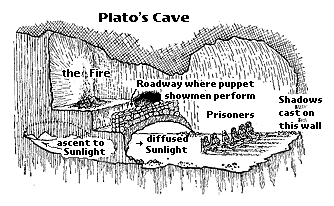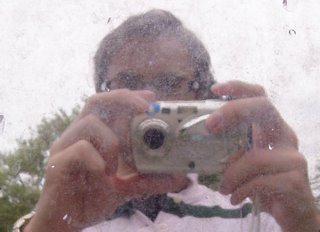Interview with Ivana Santilli
Telephone: Saskatoon-Toronto, Oct. 26, 2004
[Beginning of interview recording]
Ivana Santilli: You know I’ve been trying to get out of the studio for the last hour and half. But it’s something that you always have to just keep at. You know. Whatever.
Anders: So you’re busy at work right now?
Well, actually right now I’m actually driving to dinner, which I’m late for, with a friend. But no, I’m good to do the interview right now.
Ok, so...
Again, I apologize. Things were scheduled too tightly today. And the interview was scheduled right in the middle of my day, when I’m working and running around, and I actually don’t like doing cellphone interviews in the day, because I find I can’t be as focused and I’d rather give you a good interview.
Definitely. Thanks. So, uh, I just have a few questions for you. Uh, to start…a lot of people know you from your time with Bass Is Base. What precipitated your decision to leave Bass Is Base and begin a solo career?
What happened? You know what it was? I wanted to know where I begin and where I ended. In a band you don’t know that. In a band other people finish your sentences and you finish other peoples sentences. You know? I didn’t know how complete I was. If anything I just didn’t know if I was growing. There was no room for me to grow. And even…at the time I didn’t even know if I was good at what I did. I just knew that I liked doing it. And that a lot of the things I did worked. So, you know, at one point I…I can’t explain what the need is, but it’s just a very visceral need to express something. And if I couldn’t do it in that formation, I wanted to do it someway. And more than anything I knew that it just wasn’t a healthy relationship in that group anymore. And the expression was being…um…what would be the word…stunted. You know what I mean? We just weren’t working well as a group anymore.
And this allowed saying, “This is what Ivana wants to do,” not “What the group wants to do”?
And you know, it’s not a selfish thing because you can’t really give much of yourself unless your happy somewhere. So I was growing and there was no more room for me to grow, and I just wanted to find out who I was. I had written a bunch of songs and then I recorded them, and then do an album. I was just one step after another. I didn’t just decide to leave the group, [saying] “I’m going to release an album.” This wasn’t all planned out. More I had to figure some things out for myself.
Sounds like a fairly common music career, in that it’s not something you can plan out. So you have two albums out right now, Brown and Corduroy Boogie, and both have been pretty successful. Brown was one of the top selling Canadian releases the year it came out.
Yeah, I still can’t believe it. [laughs] It’s really great.
You’ve had a lot of success with that. Are you working on a new album right now?
No, no, no. Right now is all about Corduroy Boogie. I mean, I do some side projects, you know with other people, like that’s what I was doing tonight. Working with somebody, something for a soundtrack. But I can’t say what it was at the moment…
[laughs] Yeah, I understand.
Yeah, but uh…I like to work on side projects, I like to work on remixes once in a while. But right now the concentration on my solo career is with Corduroy Boogie because it was just released.
That leads to my next question. You’re doing touring right now, as well as some studio work. What’s your love? Is it live? Touring?
Both. They feed each other. Yeah, they definitely feed each other. Because at some point you can’t just keep playing live, you need to go back in and write. And refuel the inspiration. You know? They’re just two completely different animals. There’s something with live that happens, it’s completely spontaneous and completely interactive and it’s really about a direct connection with other people. And it’s more like, social. Whereas studio is more like…it’s more like meditating. You know what I mean? You can experiment a lot in the studio. It’s about sounds, and direction as opposed to something, more…I like the word visceral, because that’s where it comes from. You know it’s all from the soul when it’s live. You just got to go with your guts. Like “Am I going to go for that note?” or “Am I going to get it?” You know?
So, your music, of which I’m a fan. Discovered it a couple of years ago. Appears on my playlists quite a bit. And when I heard you were coming, I was like “You know, I want to do this interview.”
Oh, good. You know. Thank you. [laughs]
I know a lot of people find your music difficult to narrow down to a specific genre. I remember when I was doing some research for this, I looked up…you got some really good Amazon reviews,
Mmm hmm. I saw some of those. It was actually really encouraging.
One of them described it, your album Brown¸ as a blend of “drum n’ bass, Jazz, R&B” and do find that an accurate description? How would you describe your music?
I think that was. It is a blend of things because I was trying to do all the styles that I loved. I just wanted to represent all of that on one record. It’s hard to say what I am as a whole because this record is a little different; it’s more focused on Groove and Funk. Because you know funk can go a lot of ways, like Jazz-Funk, there’s Hard-Funk. So there’s all kinds of…
It’s a wide genre.
It is, it is. At the same time it really is about the groove. And you know I love Earth, Wind and Fire, Gap Band, but I love Sheik. And I really love that whole Boogie Era where it wasn’t necessarily Disco, but it wasn’t really Funk, but somewhere in between. You know, where it was about bass lines, it just moves that part of your body that’s just like mid-thigh to belly button. And that’s really my favourite type of music right now.
You mention Earth, Wind and Fire. What about some of your other influences? I read you have French and Italian roots. Is that right?
Yeah.
Does that have an influence on your music?
Yeah, I would say, the things I can see now coming out in my music most; I’d say there’s Italian melodies, Neapolitan tunes especially, that my father used to sing. They’re very melodic and they’re very passionate. And they like, kind of tear at your heart sometimes, the melodies. And….
[Interview recording interrupted, loss of cellphone signal]
[Recording cuts back into middle of interview]
The last time I was in Saskatoon, I was there on a Sunday it [a local spa] was closed.
But this time your show is on a Friday. So, more of Saskatoon should be awake and alive.
Ok, good.
Well, I’ll definitely be at your show. It was great talking to you. Thanks for the interview.
If you can, I mean, introduce yourself to me after. Just wait around or something.
Ok. I will do that. Also, definitely do a write up and promote the show.
Thank you very much.
No problem. Again, thanks a lot.
Ok. Bye!
[End of interview]







